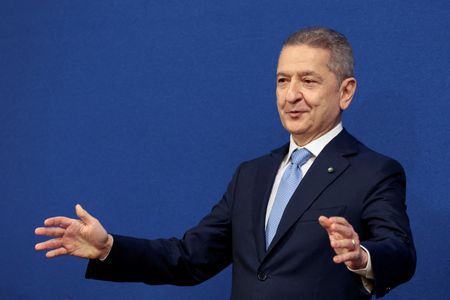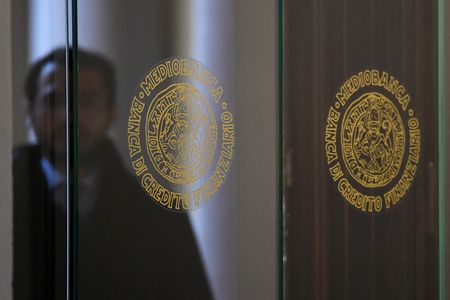MILAN (Reuters) -The European Central Bank should continue to loosen its monetary policy if threats to economic growth from international trade tensions and geopolitical instability strengthen the current disinflationary trends, a policymaker said on Friday.
ECB governing council member Fabio Panetta told an annual meeting of Italy’s banking association that the current outlook, which projects euro zone inflation at 1.4% in early 2026 with a return to 2% the following year, was highly uncertain.
“The key issue now is whether the current level of interest rates is adequate to keep inflation close to target, avoiding persistent deviations in either direction,” he said.
As inflation has diminished, the ECB has cut interest rates eight times in its current easing cycle, bringing the key deposit rate to 2%.
“If downward risks to growth were to strengthen disinflationary trends, it will be appropriate to continue with the policy easing,” Panetta said.
He added that the experience of the past decade, which has seen an extended phase of low inflation followed by violent inflationary shocks, has shown it is important to react decisively when the inflation rate deviates from the ECB’s target either upwards or downwards.
“In coming months, the monetary policy approach must remain flexible and pragmatic,” Panetta said.
“It will be vital to continue to assess (from one ECB meeting to the next) the outlook and risks for price stability,” he added.
(Reporting by Valentina Za, editing by Gavin Jones)










